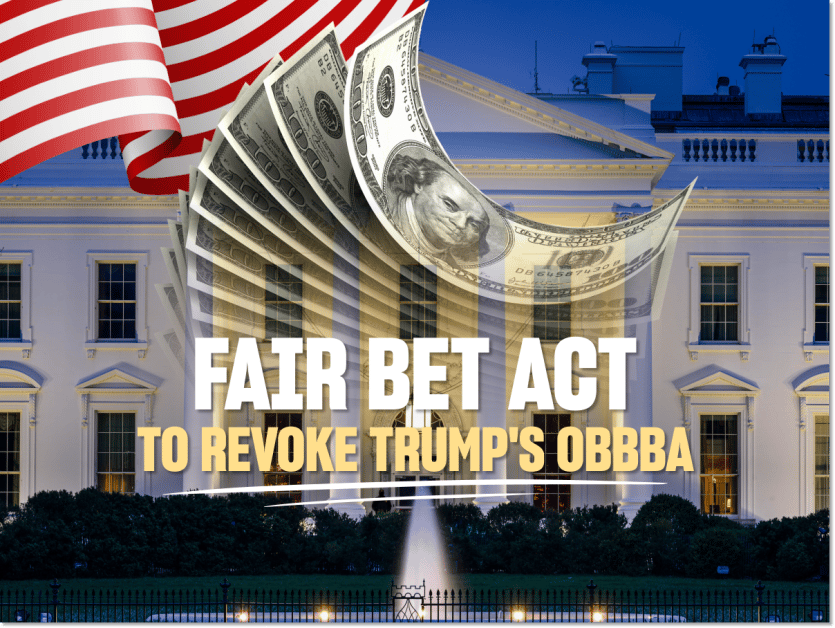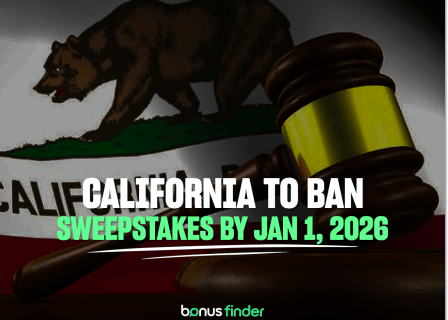Rep. Titus introduces bill opposing President Trump’s OBBBA gambling tax rules
BonusFinder, a casino bonus comparison site, gives you the latest on Trump’s most recent bill – signed on 4 July.
Nevada Representative Dina Titus has introduced a bill that seeks to revoke President Trump’s One Big Beautiful Bill-imposed 90% gambling loss tax limit.
Titled the ‘Fair Accounting for Income Realized from Betting Earnings Taxation Act’ (FAIR BET Act), this motion promises to reinstate a 100% deduction for taxes on gambling losses.
According to Rep. Titus, the FAIR BET Act will “rightfully restore” recently amended legislation in a bid to protect gaming – which she has since dubbed the “lifeblood of our economy“.
So, does Rep. Titus’s bill stand a chance of passing in the wake of President Trump’s One Big Beautiful Bill Act (OBBBA)?
Why the FAIR BET Act matters now
On 4 July, President Trump signed the OBBBA into law at the White House. Speaking on the bill’s passage, the President said: “There has never been anything like it, as far as winning, winning, winning.”
However, the sentiment among casual and professional players in the betting industry was quite stark. Under the OBBBA, just 90% of gambling losses may be deducted from taxes.
In effect, a player who breaks even at $10,000 can only deduct $9,000 from end-of-year taxes. The remaining $1,000 is taxed by the IRS as though it was earned as profit.
This move was spearheaded by Idaho Senator Mike Crapo, who believes this gambling loss tax amendment will funnel $1.1bn into the federal system over an eight-year period.
What Rep. Crapo did not necessarily account for is the significant negative impact on the gambling industry – as, in the words of Rep. Titus, the OBBBA “pushes people into the black market”.
Moreover, the 90% limit on tax deductions from gambling losses could enforce untenable tax obligations on major players within the industry and “ruin professional gambling”, according to professional poker player Doug Polk.
Thus, the FAIR BET Act represents an attempt to undo changes that could wreak havoc on the domestic gaming scene.
What does the FAIR BET Act propose?
Rep. Titus’s FAIR BET Act is a simple proposal which, if passed, would require a minor amendment to President Trump’s OBBBA.
Essentially, the bill stipulates that the phrase ‘90%’ be changed to ‘100%’ in all instances where the OBBBA refers to new gambling tax regulations on losses.
Therefore, success for the FAIR BET Act would see players across the industry taxed solely on the amount of money won, rather than being hit with costs stemming from losses.
In short: the FAIR BET Act plans to allow individuals to deduct 100% of gambling losses from taxes, rather than the OBBBA’s new 90% threshold.
Rep. Titus posted a letter on her official Government page stating: “My FAIR BET Act would rightfully restore the full deduction for losses so gamblers don’t pay taxes on money they haven’t won.”
Will the FAIR BET Act pass?
Whether the FAIR BET Act passes first depends on its reception within the Rules Committee. This determines if, how and when the House will debate the bill.
Should it advance through the Rules Committee and earn support from the House and Senate, Rep. Titus’s motion will then be sent to the President for official signing.
But, even if the FAIR BET Act falls at the first hurdle, Rep. Titus plans to “introduce a separate bill” supporting the same objective.
As stated by Rep. Titus on X (formerly Twitter), the motion has already received bipartisan support from multiple cross-party representatives – pointing to realistic potential for its passage.









